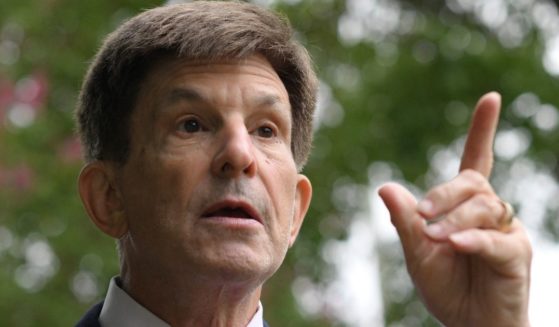YouTube Now Adding 'Fact Checks' to Any Video That Questions Global Warming
After YouTube’s March announcement that it would place links to Wikipedia on videos that spur conspiracy theory to inform viewers, the video platform is now placing fact checks on any video that questions global warming.
BuzzFeed News confirmed that this was part of the company’s “ongoing effort to combat the rampant misinformation and conspirational fodder on its platform.”
Now, a little blurb from Wikipedia or Encyclopedia Britannica appears under videos that call climate change into question, ensuring that the public knows, “Multiple lines of scientific evidence show that the climate system is warming.”
The Wikipedia entry says, “Global warming, also referred to as climate change, is the observed century-scale rise in the average temperature of the Earth’s climate system and its related effects. Multiple lines of scientific evidence show that the climate system is warming.”
Look what happens if you, even as a scientist, criticize the concept of global warming or #ClimateChange in any way on Youtube. @FoxBusiness's video now includes a hectoring 'fact check' below the video. This is just now being rolled out… #AlexJones #FreeSpeech #FreeInfowars pic.twitter.com/ZBKe9ikG22
— iroots👀org (@irootsorg) August 9, 2018
“I’d guess that it will have some influence, at least on those people who don’t know much about the subject,” Anthony Leiserowitz, director of the Yale Program on Climate Change Communication, told BuzzFeed News. “Might be confusing to some people, but that’s probably better than just accepting the denier video at face value.”
Although the full list of topics that YouTube will be targeting has not been disclosed, on July 11, Wikipedia listed seven topics the company was working with YouTube to clarify. The topics are as follows: global warming, Dulce Base, Lilla Saltsjöbadsavtalet, 1980 Camarate air crash, Federal Emergency Management Agency, Kecksburg UFO incident and the MMR vaccine.
When YouTube CEO Susan Wojcicki announced in March what the company is calling “information cues,” she said that the company wants to make sure they are “delivering the right information.”
The new Wikipedia blurb policy went into effect in July, but users were not notified that they had uploaded an affected video.
“It was a surprise when we saw it show up on videos that are not conspiracy videos, but climate science videos,” Joe Hanson, who produces climate change video series such as “Hot Mess,” told BuzzFeed News.
This change has been met with a series of responses, especially after YouTube banned conspiracy theorist Alex Jones.
“They could have chosen wording that’s stronger and gets more to what the real terms of debate are between the extremely well-supported consensus scientific video versus the much, much smaller proportion of skeptics,” Professor Jason Reifler of the University of Exeter told BuzzFeed News.
Climate scientist Michael Mann said that the new blurb is like the warning label on cigarettes. “Warning — this video may or may not be promoting actual facts about climate change.”
“But the real issue here, of course, is that like Big Tech’s near-blanket banning of Alex Jones, it’s the thin end of the wedge,” James Delingpole argued on Breitbart.
“We know that, given half the chance, Big Tech would like to go much, much further in its censorship of viewpoints which run counter to the prevailing Silicon Valley ‘progressive’ narrative.”
YouTube is using an algorithm to decide which videos get the Wikipedia message, and the changes are being rolled out slowly over the next few months.
Truth and Accuracy
We are committed to truth and accuracy in all of our journalism. Read our editorial standards.
Advertise with The Western Journal and reach millions of highly engaged readers, while supporting our work. Advertise Today.












